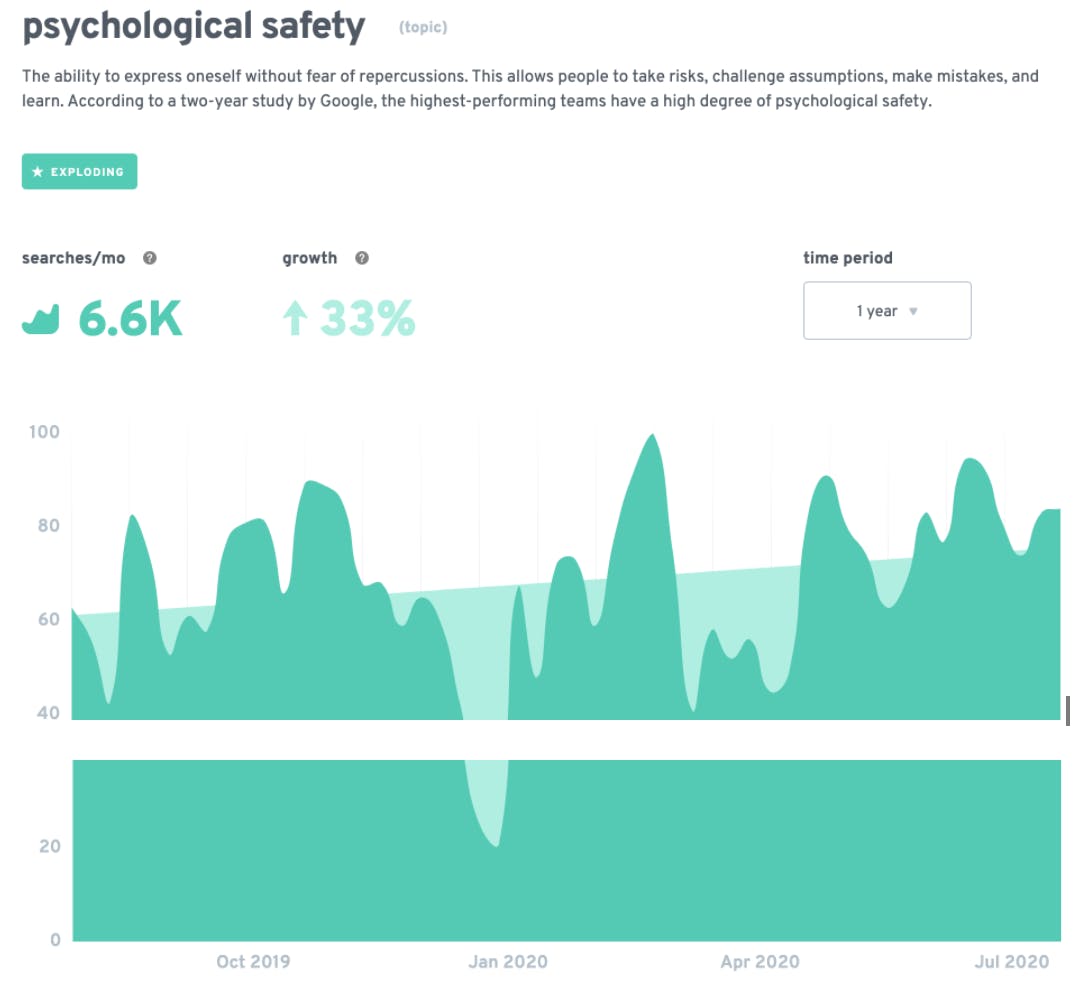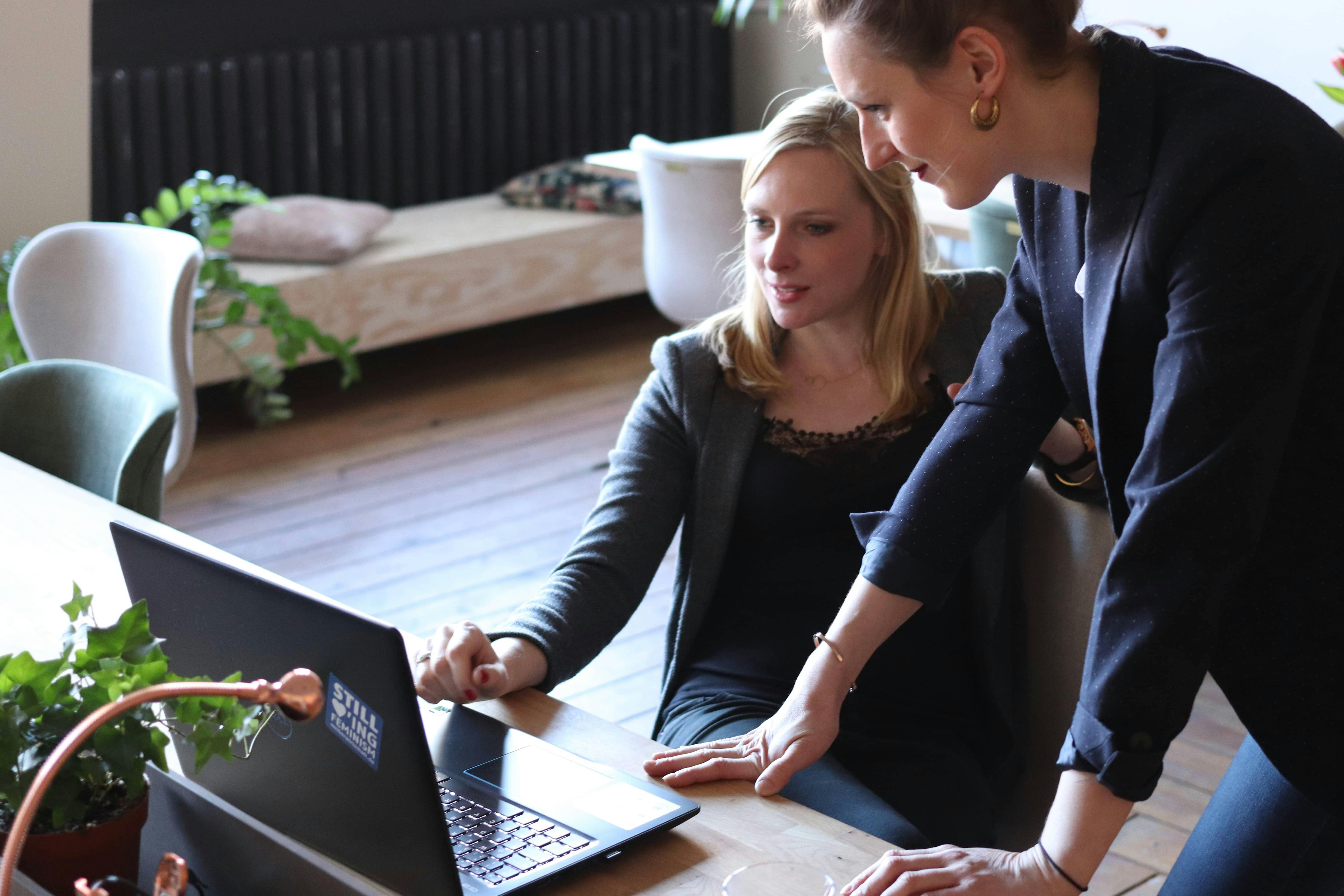What HR Wants Right Now
We’re in discussion with several VC’s who want to know ‘what’s the top of mind problem HR is trying to solve right now?’. So we asked them! Here’s a summary of the top 5 themes we heard back from ten Global CHRO’s this week. We’ve kept their comments anonymous to focus on the commonality of these tough functional challenges:
1. Wellbeing & WFH Employee Experience
All of the leaders we spoke with were unanimous on the topic of wellbeing right now. Employee experience was already firmly on the HR agenda, in response to staff behaving more like ‘consumers’ in the workplace, however the new #WFH conditions for most knowledge workers has accelerated the agenda. Previously in the office environment, we had Colleagues around to ‘catch’ and support each other when there were gaps in onboarding, development or communication. Now in the absence of the water-cooler, staff are flying solo - a companies approach to driving an engaging and compelling work environment needs to move virtual. For companies with poor communications strategies and weak connectivity between Colleagues, we’re seeing big break downs in work production as a consequence.
Our CHRO’s had a lot to say on this point, demonstrating how topical it is right now:
How to support physical and mental wellbeing of our people through this chaos and change, ensuring psychological safety in our workplace, limiting risk of burnout etc.
Supporting employees through Covid19. Changing working patterns, remote ways of working and engagement, additional wellbeing support. Plus return to the office – what can we take from how we have managed deliver in recent months and keep the best of the flexibility for employees.
WFP for the future: real estate, finance, HR and TA need to work together to reimagine the workplace and workforce of the future
Shift to virtual working, both in terms of behaviour change but also the practical and labour law implications around the world
As we shift to increased home-working, helping teams to collaborate online effectively and manage work remotely arises. In addition, the shift to remote working throws up several practical challenges for us related to Labour law around the world, company HR policies and salary and benefits questions.
Retaining the talented individuals, and last but not least is the mental health of the organization.
The companies that can engage and retain talent virtually and leverage employee advocacy to help build their talent brands will win. Can't do any of this if employee experience isn't a priority. Everyone owns EX (it's not just a HR thing)
Employee wellbeing is, broadly speaking, top of mind as we navigate through and towards a post Covid 19 world. As business and organization strategies as well as ways of working shift to adapt to an uncertain economic climate, so the need to support employees in building resilience will likely increase. We need to be highly adept at helping our employees both practically and emotionally to navigate uncertainty and change.
Wellbeing is understandably a huge theme right now - not only are staff disconnected and experiencing ‘gaps’ in the companies employee experience that hasn’t been digitally adapted, but there’s the overarching context of global distress - how well equipped are staff to safely show and manage pressure when they’re physically distant? How are colleagues enabled to support each other in your culture? Are they rewarded for doing so? Do your policies and training create a culture of psychological safety? This later element has seen a huge increase in google searches of late, demonstrating how much companies and individuals are searching for practical methods to ‘get’ safety in their teams.

Here we’ve seen a massive deployment of mentoring and coaching to ‘bridge’ human relationships across the digital workplace quickly, in addition to team coaching to support colleagues to act out psychologically safe practices in their zoom calls. This kind of experiential learning drives the muscle we need right now, but will have huge impacts for the workplace if / when we all move back to our offices.
2. Skills
COVID has pushed the agenda for skills - both how you assess them, and how you develop them to ensure the future-readiness of the workforce. The discussion around skills starts with how you define them - what’s the taxonomy you use, how comprehensive does it need to be, and are we talking the same ‘skills language’ across businesses and industries? This concept of skills poses a huge opportunity for staff to identify existing strengths and future development areas, get independent accreditation for these skills (think blockchain) and use this framework as a superhighway for career development across companies.
Here’s what the CHRO’s said:
Most of the assessments available now are self-reporting and recommendation by others, and it can be quite subjective, so I try to look at more objective tools and combine them with other tools in one single user platform so we can use it for the mass population at a low cost, to ensure each employee can have a profile so we can put staff in the right job.
Future Skills – our organization is changing rapidly – new agile ways of working, digitization, both organizational structure and behavioural shifts – how do we make sure people are ready for the future and leaders are ready to guide them through the change.
With BOLDLY we have a clear pathway to addressing skills for independent assessment and development planning. There’s several skills taxonomies floating around, but the one we see the industry gravitating towards which we have under review is EMSI - we welcome industry comment on this point.
3. Smart Learning & Traditional Development
HR are clearly trying to work through more impactful methods of learning and development now. We’ve seen a huge uptick in online learning programs, which are quickly deployable are companies address #WFH development, however, the question on relevance and alignment to career and performance goals still needs to be addressed by most organistaions. So while Talent Partners are quickly deploying digital content off the shelf, they have their eye on the medium-term goal of getting ‘smart’ and predictive for individual learning pathways, as well as the measurement of learning outcomes.
Our CHRO’s are addressing ‘age old’ problems here, but striving to use science, data, technology, and more experiential learning to drive relevance for our current business climates:
Growing and developing new managers. Not being active in an office makes it hard to coach and give real-time feedback when I don't have a lot of visibility in day-to-day operations.
Instead of search for learning, we’re looking at how can we proactively recommend learning (not the whole course but a segment of a course that is relevant), in a just in time, just for the employee basis?
Simulation - the cost of developing a simulation is very expansive and with the business environment changing so fast, the initial investment may not be relevant. Is there any offering that is like a standard plot which you can add in or delete scenario based on the changes in market/ economy so we can still make the simulation relevant?
We see the importance of design thinking for strong ideation and solutioning to address these needs more deeply than an initial knee-jerk COVID reaction allowed for. We’re also seeing a huge uptick in coaching and mentoring being used as the ‘red thread’ that brings these initiatives to life for high-touch support while clients regroup their program strategies.
4. D&I
While CHRO’s had diversity, inclusion and belonging on the agenda already, the perfect storm of the health pandemic, economic downturn, and civic uprisings all around the world have brought inclusion onto the public agenda, creating a moment in time where the old initiatives are being reconsidered and critiqued, and organisations are willing to double-down on resources.
Remote work has opened up the talent pools and hopefully we can hire talent where they are, rather than relocate them to our HQ and in doing so, redistribute some wealth and opportunity.
Diversity & Inclusion continues to stay top of mind – building a truly inclusive workplace and challenging current inclusive practices across all lenses of D&I – how do we advance our agenda for true impact and DNA level change within the organization.
While many companies have been critiqued for virtue signalling, most have the right intentions, and if this is the moment we can leverage to get the outcomes we already knew we needed, then let’s go. Our clients are using BOLDLY to quickly deploy coaching and mentoring to talent populations who need and deserve additional resource right now - this includes building skills, knowledge, attitudes and mental models that support a richer future of work.
5. Organisational Development
Implicating and archiving across all of the above is an important aspect of organisation development. Companies are changing their product, their staff base, their business models, and in response HR has had to quickly deploy new alignment strategies so that these businesses can not just adjust, but grow and thrive. The fundamentals of role levels, workforce planning, and cultural agility have come sharply into focus.
Here’s our HR Leaders:
There is a lot of confusion around levelling in general as our business model has shifted and grown fast through COVID. This is relevant for my own team, but additionally for how we hire into the company.
Enabling the org to address a once in a century tectonic shift in business model, focusing on revisiting business model, aligning it with headcount and staffing plans for the next 2-3 years
HR has a generational opportunity to demonstrate business impact central to our companies adjustment and thriving into the next decade. Let’s take the opportunity to get the hygiene work done that’s been caught up in our old systems, so our organisations can emerge cleaner, smarter, and more agile to tackle whatever is waiting for us next. Companies with their house in order will always win the game of engagement, development, and innovation.
We thank our CHRO’s for opening their comments to our VC partners, and we welcome hearing comments from the broader HR community if you’re seeing the same, or different themes in your function. The open-source HR community is getting richer, and our businesses and people can only benefit on these themes and others as we work through impactful solutions.
